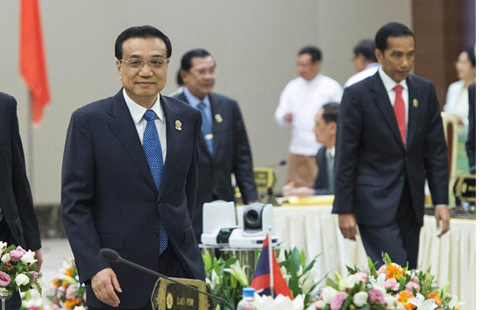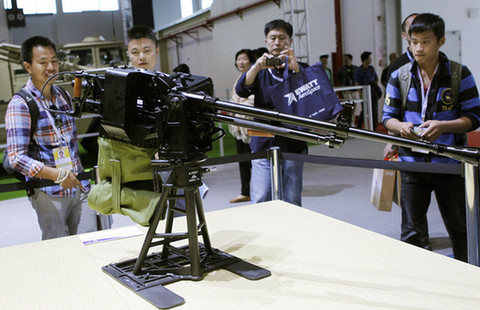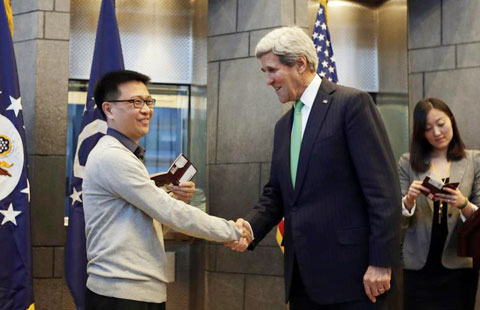Recalibrating China-US relations
Updated: 2014-11-13 07:50
By Zhao Minghao(China Daily)
|
||||||||
Applying some strategic ambiguity in the South China Sea would be useful to ensure the stability and prosperity in the Asia-Pacific
Even though President Xi Jinping and his US counterpart Barack Obama held summit talks on Tuesday and Wednesday following the 2014 APEC Economic Leaders' Meeting, the Sino-US relationship still has uncertainties.
At least until this week, the outlook for a new type of major-country relationship seems to have darkened 18 months after their summit in Sunnylands, California, and there are growing concerns that China and the United States might descend from competition to rivalry. The Asia-Pacific would doubtlessly be the main arena should that be the case.
The US is increasingly worried about China's long-term policy intentions as it seems to be taking a harder line on the territorial disputes in the South China Sea and East China Sea. As China has also refused the proposal by US Secretary of State John Kerry to "freeze" these disputes, the US also feels its elevated role as "arbiter" is being challenged.
In addition, at the 2014 Conference on Interaction and Confidence-Building Measures in Asia, held in Shanghai in May, Xi raised a new concept of Asian security advocating that "Asian people be responsible for Asian affairs". Although he expressed that the region would welcome positive contributions from other parties, the move was widely interpreted by US strategists as trying to "edge" the US out of Asia and build a regional order without Washington.
Further, 21 economies in the Asia-Pacific have signed up as founder members of the Asian Infrastructure Investment Bank, which was initiated by China. A Silk Road Fund of $40 billion has also been set up by Beijing, which offers new channels for the country to use its huge foreign currency reserve other than purchasing US debts. As China's contribution rate to the Asia-Pacific economy exceeds 60 percent, the huge economic potential is turning into actual influence.
As a result, the US, which used to claim that it expects China to shoulder more global responsibilities, now fears China is starting to shoulder too much in the Asia-Pacific. In an article in the New York Times, Wesley Clark, a retired four-star general and former NATO Supreme Allied Commander, said that US' constructive engagement policy toward China had failed and it is time to "get real about China".

 Lang Lang honored with German award
Lang Lang honored with German award
 Premier Li attends the 9th East Asia Summit
Premier Li attends the 9th East Asia Summit
 Airshow China soars to success in Zhuhai
Airshow China soars to success in Zhuhai
 The most people dine on the beds
The most people dine on the beds
 Dangling workers rescued from World Trade Center
Dangling workers rescued from World Trade Center
 Long-term visas issued for China, US citizens
Long-term visas issued for China, US citizens
 Long-term visas issued for China, US citizens
Long-term visas issued for China, US citizens
 Culture Insider: Chic items in ancient China
Culture Insider: Chic items in ancient China
Most Viewed
Editor's Picks

|

|

|

|

|

|
Today's Top News
Chinese company, US farm coop to build milk-powder plant in Kansas
China, ASEAN set goal for upgrading FTA
Country pushes for code at South China Sea
Beijing wants to keep 'APEC blue'
The Waldorf's hefty price tag
US, China reach landmark pacts
Youth urged to get politically involved
Rick Snyder seeks to woo China trade, giant pandas
US Weekly

|

|







